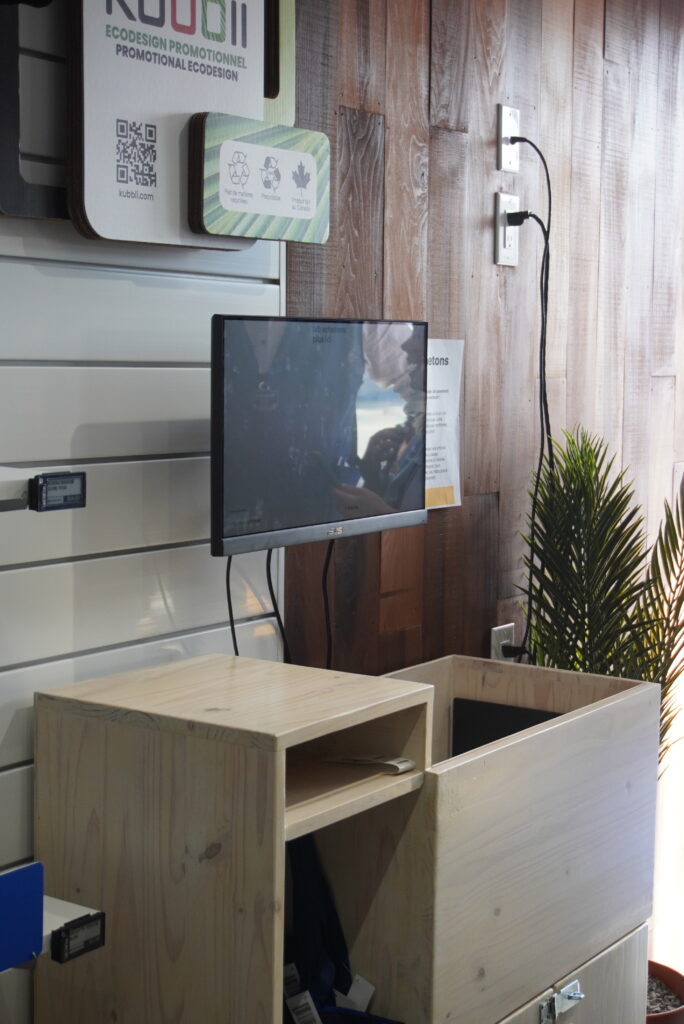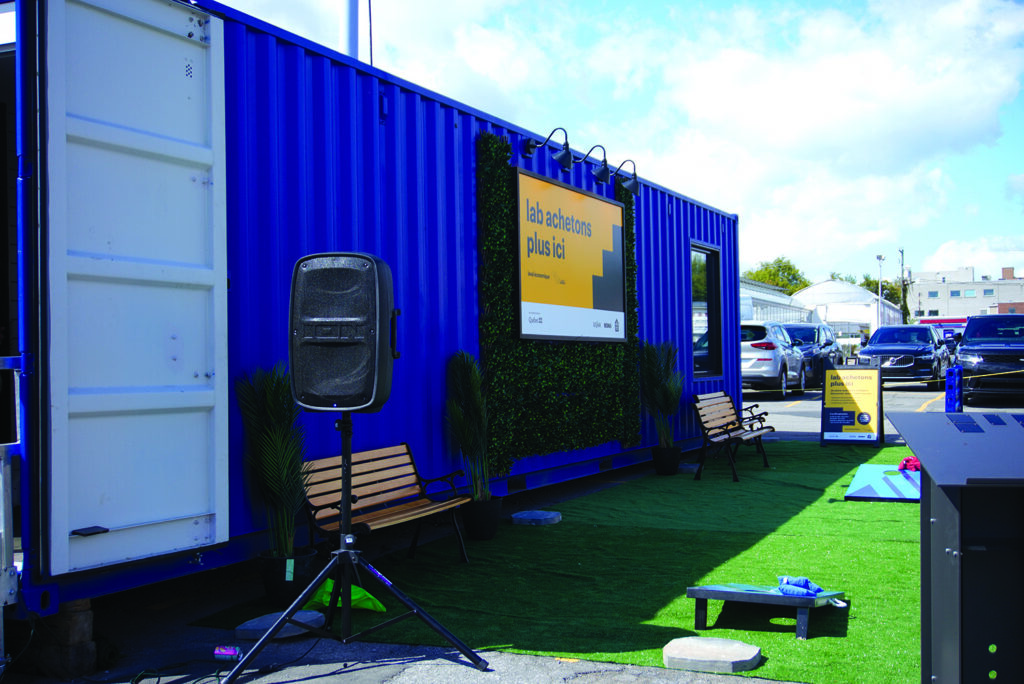Matthew Daldalian, Local Journalism Initiative Reporter
Air Canada passengers across Canada and abroad were left scrambling last week after more
than 10,000 of the airline’s flight attendants took to the picket line. The strike, which lasted from
Aug. 16 to 19, grounded flights at the peak of the summer travel season and affected nearly half
a million people worldwide.
The walkout ended after a tentative deal was reached between Air Canada and the Canadian
Union of Public Employees (CUPE), but backlogs continued for days as travellers tried to make
their way home.
“I can’t even explain the emotional rollercoaster that we went through,” said Laval resident Rosy
Trimboli, the uncertainty turned her family’s first trip to Europe into a drawn-out ordeal. “It’s been
hell to say the least.”
The Flight
Trimboli’s return flight to Montreal was scheduled for Sunday, Aug. 17. On the Thursday
previous, she received an early notice warning of potential disruptions. Before she knew it, Air
Canada flights were grounded, and her family’s return was suddenly in question.
Attempts to reach Air Canada took hours, with spotty Wi-Fi connections and long waits on hold.
When she finally connected with an agent, she was told her original flight was still technically
intact— meaning the airline could not yet rebook her family onto a competitor. The only other
option was to reschedule for later in the week.
“It was like a real-life gambling decision on the spot,” she said, describing the pressure of
deciding whether to rebook or hold onto her original flight.
Faced with uncertainty, Trimboli tested her luck: her eldest would fly alone on Thursday, while
the rest of the family would follow Friday through Frankfurt. Hours later, news broke that a
tentative agreement had been reached.
Under Canada’s Air Passenger Protection Regulations, airlines are required to rebook
customers on other carriers if flights are cancelled. But because strikes are considered beyond
an airline’s control, Air Canada is not obligated to cover additional costs like hotels or meals.
Still, the carrier expanded its policy, pledging to reimburse “reasonable” out-of-pocket expenses
such as lodging and transport for travellers affected between Aug. 15 and 23.
For Trimboli’s family, the uncertainty stretched over days. As they weighed their options, they
also booked a separate set of refundable tickets at a steep cost.
“Hours of searching and thinking and how can we get out of here,” Trimboli said. “We were just
throwing money to get home.”
Ultimately, the family cancelled those tickets, hoping the rebooked Air Canada flights would
hold. The decision added to an exhausting stretch of second-guessing and mounting costs,
including multiple Airbnbs and meals for the extra days.
Air Canada expects most delayed passengers to be rebooked by the end of the week, though it
acknowledged that clearing the backlog will take time.
After a Cruise
While Trimboli grappled with uncertainty overseas, other Laval residents faced similar
challenges closer to home.
Christine, who asked that her full name not be published, had just disembarked from a cruise
with her family of five when she discovered their return flight was cancelled the night before
departure. With limited phone access on the ship, she scrambled for alternatives.
Flights back to Montreal quickly became unaffordable, so Christine cobbled together a
patchwork itinerary through the northeastern United States. Her family eventually flew into
Albany, New York, then drove across the border to Laval.
“It was chaotic and stressful,” she said, adding that a looming hurricane in Florida only
heightened the pressure.
Part of her frustration came from how little information she could get from the airline while trying
to make arrangements. She also questioned why action from authorities only came once flights
were already grounded. “What’s even more disappointing, to be honest, is that the government
didn’t get involved at all before this,” she said.
Despite the disruption, Christine said she had no resentment toward the crews who formed the
picket line. “I totally agree that these people should be paid from the moment they get on the
plane and not just when they’re in the air,” she said. “I absolutely sympathize with the flight
attendants.
Labour Issues
The tentative agreement with CUPE includes annual raises over four years and, for the first
time, pay for work done on the ground. Newer attendants would see a 12 per cent increase
retroactive to April, while those with more seniority would receive eight per cent. Salaries would
continue to rise gradually, with the cap moving from $80,000 to $88,000.
Ground pay would also be phased in, starting at half an hourly wage and rising to 70 per cent by
the end of the contract. Union members are expected to vote on the deal between Aug. 27 and
Sept. 6.
For Zareh Asparian, another Laval resident, the strike meant turning a weekend trip to
Edmonton into a cross-country road journey. He had travelled with his wife and daughter for a
skating certification event, only to find return flights to Montreal repeatedly cancelled. After
exploring connections through the country and even the U.S., he and his family were left without
viable options.
Instead, they extended their car rental and drove the 3,700 kilometres back to Laval over three
days.
“There are worse things in life,” he said. “But where I have a hard time is… you can’t leave
people stranded.”
Asparian said he supports fair pay for flight attendants but called striking as a tactic “outdated”.
“I think things could be handled in a much more professional manner,” he added.
Back to Work
This summer’s unrest is not the first time Air Canada passengers have found themselves caught
in the middle of a labour dispute. In 2011, flight attendants and ground crews staged separate
walkouts over pensions and wages, only to be forced back on the job through federal legislation.
The following year, pilots protested imposed contracts with coordinated “sick-outs,” disrupting
hundreds of flights before Ottawa again stepped in.
Similar tensions have flared before, including a nationwide strike in 1998 and repeated disputes
after Air Canada’s merger with Canadian Airlines in 2000. Labour unrest has been a recurring
challenge for the country’s flagship carrier.
The strike was the first since 2011 to defy a federal back-to-work order. Labour Minister Patty
Hajdu invoked Section 107 of the Canada Labour Code, which grants the government power to
intervene in work stoppages deemed disruptive to industrial peace. Critics say the measure
undermines unions’ bargaining leverage, while advocates argue it protects the travelling public.
For many passengers, the broader debates about contracts and labour law mattered less than
the immediate toll of being stuck far from home.
Trimboli said the hardest part was the lack of clarity. “I was just hoping for a bit more
transparency as opposed to a little bit every day of like, here, you’re cancelled, we don’t know,”
she said.
Air Canada has encouraged passengers to submit claims for reimbursement. However, some
travellers may face long waits for resolution as CBC reported that Canada’s complaints backlog
is already at more than 87,000 cases.
For Trimboli, the experience left a lasting impression. “People told me there are worse places to
be stuck. But there’s nowhere in the world that you want to be stuck when you just want to get
home,” she said.











































































